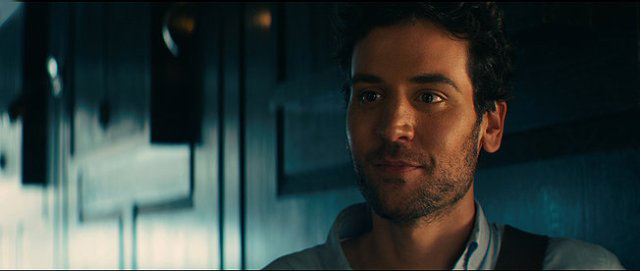
Last week we presented the first half of my interview with Happythankyoumoreplease‘s writer/director/star Josh Radnor, in which he expounded on his discoveries about himself and moviemaking through the lens of his first feature’s production. This week I’m sharing with you what happened when I ran out of questions and ended up in an enthusiastic conversation with a filmmaker I admire, who shares my propensity for sincerity over cynicism – no matter how démodé.
But first a bit of background:
Happythankyoumoreplease is an ensemble comedy that explores themes of friendship, gratitude, and growing up through three interweaving narratives of twenty-something New Yorkers. The film garnered standing ovations and wild praise at Sundance in 2010, but upon its theatrical release received a generally negative response from critics. As a critic, I was baffled by the abrupt about face, and wrote my own review from a position of defending not only my high opinion of a comedy that affected me deeply but also of a film I felt was being unfairly maligned.
I began with Josh by thanking him, as seeing Happythankyoumoreplease had pulled me out of an emotional funk I’d been stuck in for days. Now, I was admittedly most interested in discussing the critics’ response, but was hesitant to start the interview on such a potentially antagonistic note. Luckily, Josh beat me to it saying, he was largely avoiding reviews, but admitted surprise that many critics have shunned his film, when it received so much love on the festival circuit. While we went on to talk about the film’s casting, his directorial process, and how Happy evolved, we kept circling back to the current culture of cynicism and what seems to be the core of (some) critics disconnect with the film: that cynicism is so chic that sincerity is regarded with suspicion.
What follows is the highlights of this vein of conversation, which includes some details about the film that some would deem spoilers.
—-
TFS: Part of what I appreciated about your movie is the unapologetic sincerity of it. I feel like there’s this trend in cinema right now to be cynical. Like that’s a very cool pose –
Josh Radnor: I think it’s a trend in life. You know? I think movies are just reflections of where we’re at in that kind of aggregate. I mean there’s a bit of a delay like 2-3 years away because of the gestation process of movies – but when movies pop up onscreen its kind of a reflection of where we are culturally. And I think maybe one of reasons that this movie was kicked to the curb by critics is because it’s not really a reflection of where we’re at, and so they claim that that is somehow dishonest. But to me, this is where I personally want to be at. I want to grow up and just get out of my own way and surround myself with people who are on the side of good things. But in a way you risk being dorky or not “with it” by saying that. But I think it’s lame and lazy to be cynical because it’s really ultimately destructive. You’re basically on the side of inaction. You’re then saying, ‘Things are so hopeless that none of means anything so therefore let’s roll our eyes and make snide comments about things. I just don’t understand that point of view.’
So, I didn’t know I was making a movie that was so…so…
TFS: That was so subversive?
JR: Yeah! In a way – you can say that, I’m not allowed to say that – but in a way I think that’s kind of true. I know a lot of people who are onto this thing: joy in the face of fear. There’s something revolutionary about that in this time.
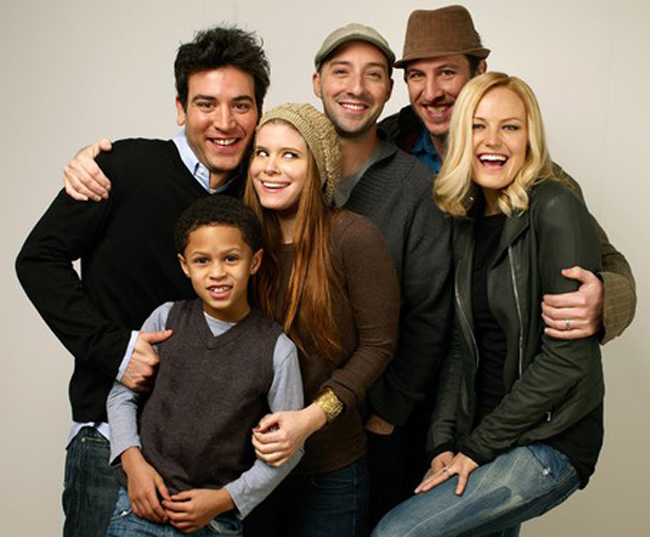 TFS: As I see it, sincerity is this big risk that is being overlooked [in the film’s critiques]; it’s not easy to be as vulnerable as your movie is.
TFS: As I see it, sincerity is this big risk that is being overlooked [in the film’s critiques]; it’s not easy to be as vulnerable as your movie is.
JR: Thank you, I agree with you…It’s also funny because even in press, when I get sent press, it seems like everyone no matter what – even if they loved the movie – take digs at it [calling out details like] “the bald girl” or “the waitress named Mississippi,” but all the things that are considered twee or indie are the things that are actually from my real life. So I don’t know – maybe I have a twee life or something.
TFS: Like when Annie says, “Get yourself loved,” I know some critics have complained, that’s just too easy – that it’s not like you can just open yourself to love, then you find love – but I think your film is partially about allowing yourself that opportunity.
JR: Yeah…It’s about taking steps in the right direction. It’s about opening yourself up to something. The ending of the movie is a kind of faux happy ending because there’s this great sweeping song, and I resolve the chord of each story, it allows us to feel some sort of catharsis. But at the same time it’s a really interesting conversation: Do Sam and Mississippi get together? Do Charlie and Mary Catherine last? Do they move? Is Annie gonna’ stay with Sam 2? Who the hell knows what’s [ultimately] going to happen to these people, but I think it’s about having a moment of growing up, saying we can do this. And I do think things are a little simpler, I think what makes it complicated are our own egotistic minds that are on this neurotic loop. But you can transcend that in a moment by shifting perspective, and I think that’s what the movie is about — largely.
TFS: I get that. The end of the movie to me felt like it was about that decision to say yes. Instead of listening to all the reasons not to do something, casting them off, going for it and taking a risk.
JR: I’m glad you’ve picked that up, because the movie is about what life is about to me, which is to saying yes to change – because that is the scariest thing for people. A lot of the characters in the movie have this sort of locked and fixed and stale idea of what will make them happy. And then something else is presented to them that doesn’t look like the idea they had [about what their happiness would look like.] And the question is: are they going to leap towards that and take a chance on something new? Or are they going to stubbornly cling to their idea of what happiness looks like? Happiness itself is kind of a loaded term and kind of reductive because it means so much to so many different people. It’s like the word love. It’s become a clichéd way to market something. And I don’t know, I guess I was trying to dust it off and look at it anew.
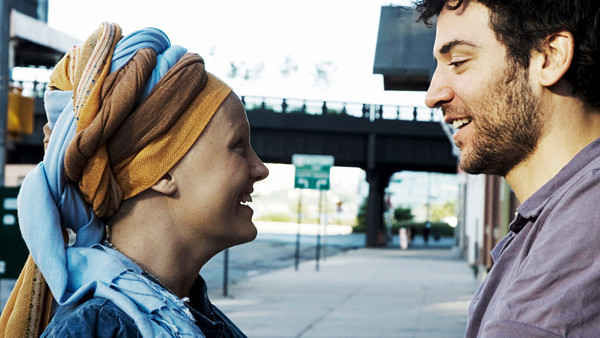
It’s curious to me how the movie speaks so strongly to some people and so not to others. I didn’t realize I was making such a controversial movie, but I’m kind of secretly thrilled that I have. You know what I mean? Like I don’t know what it is – maybe I should just move on, make another movie and not worry about it – I just find it to be such an interesting thing.
TFS: You managed this really tricky thing of making a movie that’s open and vulnerable and sincere and it’s not a pose, and I think a lot of people just don’t know how to deal with that kind of movie right now.
JR: Here’s my feeling, I would love Happythankyoumoreplease to be on 3,000 screens and break all sorts of records, but that’s probably not going to happen in its theatrical run. But I do hope that people continue to discover the movie and continue to talk about it, because I feel like it’s a movie that could really mean a lot to people, and it could be like what happened with you – it could provide some sort of lighthouse in the storm for people. I think, what else would I want from a movie? That would be my hope for the movie… I hope more people discover it. I’m really proud of it.
Ultimately I just want to be moved and inspired. If I’m going to go to a movie – that’s what I want out of a movie. And if I’m going to have the opportunity to make one – that’s the one I’m going to make. Did you see the piece I had in the Huffington Post [‘Why I Chose ‘happythankyoumoreplease’ Over ‘sadscrewyougetlost’]?
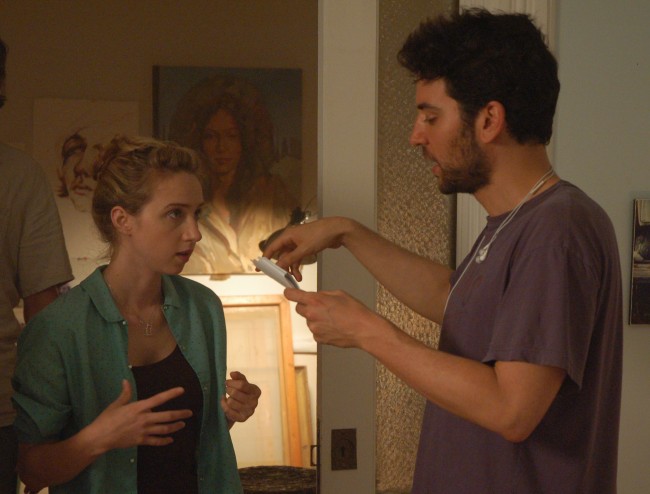 TFS: I did! I was so excited to hear someone [denounce cynicism like] that because I am aware that’s considered not cool. What is cool is this snarky pose, [but I don’t relate to that as a writer.] I don’t write about movies because I want to talk shit. I write about movies because I love watching movies and I want to love them. That’s why I’m there in the theater. [When writing my review for your film, I struggled to explain why I liked it because] it hooked me on a personal level and I wanted to try to keep my review ‘professional’ but –
TFS: I did! I was so excited to hear someone [denounce cynicism like] that because I am aware that’s considered not cool. What is cool is this snarky pose, [but I don’t relate to that as a writer.] I don’t write about movies because I want to talk shit. I write about movies because I love watching movies and I want to love them. That’s why I’m there in the theater. [When writing my review for your film, I struggled to explain why I liked it because] it hooked me on a personal level and I wanted to try to keep my review ‘professional’ but –
JR: I disagree! I mean I respectfully disagree because I loved your review and what I loved about it that you came through in it, because I feel like it’s irresponsible to – because the critical voice is generally like this weirdo omniscient ‘I know everything’ voice. And it’s silly, right? It’s like – who are you?
TFS: I think that’s why I feel a lot more nervous to write a review about something I responded to on a very personal level, because I know I’m not just talking about the movie – I’m talking about myself in some form and that can be a little harrowing.
JR: But here’s the thing – I really believe that critics should inject themselves more into their reviews. I feel this so strongly because I feel like – even when someone does a profile on me for like a magazine or a newspaper, even when it’s positive – it’s still like, well wait – what nervous system is processing this? What’s the filter? Because I feel like it’s really honest and brilliant to step forward and be like, ‘You know what – this isn’t my kind of thing.’ Like a cynical person is not going to like this movie, there’s nothing I can do to make them like this movie. But I don’t like horror movies, so if you sent me to review a horror movie, I’m pretty sure I’m going to give it a bad review because it’s not my thing. But I would think it would be irresponsible of me to review a horror movie, you know what I mean? I should be like, ‘No, hand this to the horror guy. I’m not that guy.’
TFS: Exactly – because you wouldn’t be able to appreciate it even if it was good.
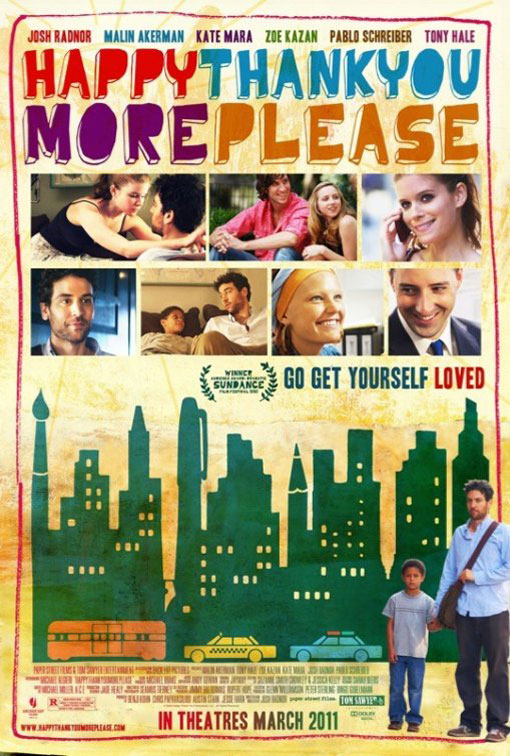 JR: Yeah, so my sadness around reviews – which again I’m not reading them but I know there’s some nasty ones out there – my sadness is that people [who may have an interest in seeing the movie, now] have a misperception of the movie that it’s not good. And that’s not the case – it really is good – it’s just not for everyone. But I think it’s for more people than its not.
JR: Yeah, so my sadness around reviews – which again I’m not reading them but I know there’s some nasty ones out there – my sadness is that people [who may have an interest in seeing the movie, now] have a misperception of the movie that it’s not good. And that’s not the case – it really is good – it’s just not for everyone. But I think it’s for more people than its not.
TFS: I think you’re right. It’s an idie film, but I think it’s for anyone who wants a happy ending…I liked that it took on something that was small, I guess, but in this very intimate and personal way – and fearlessly so. I was glad for it because I go to all these movies, and so many of them just want to show how dark and how hardcore and how gritty they can be. Sometimes it behooves the filmmaking, but [sometimes they are just] hard to watch, and I’m not getting anything out of it –
JR: And that’s considered more sophisticated! It’s very strange. But you know I think there’s more people like us out there than we realize. You know, people who are longing for something somehow less impressed with itself.
TFS: I think there’s a change in the wind, I think the fact that ‘hipster’ has become a dirty word I think is an indication that people are tired of this pose of apathy.
JR: Yes. Yes. The time we’re in, it’s going to require some people to make big changes, I think, in terms of lifestyle and attitude. Just leading from a more sincere place – I don’t think you can overstate how important that is or how it’s becoming.
—-
Happythankyoumoreplease is currently in limited release; opening in new cities today! To see if it’s coming to a theater near you, check here.
